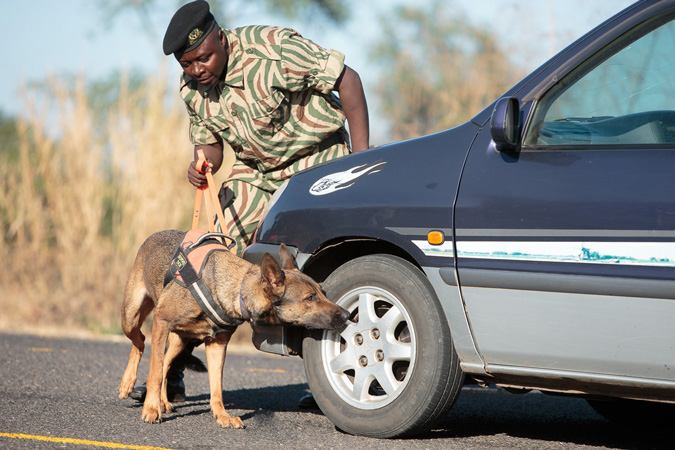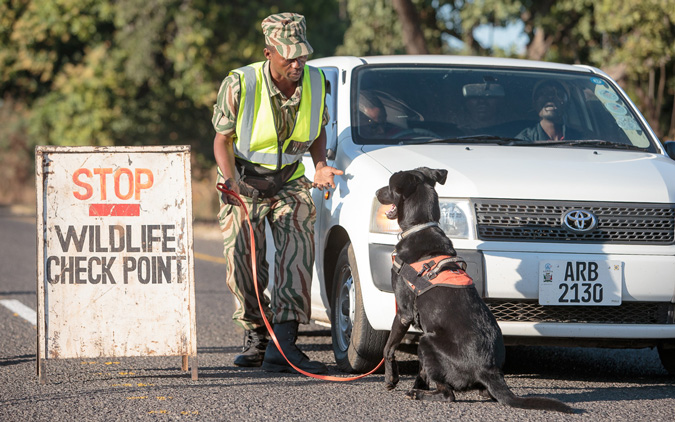Written by Rosie Fletcher, Nkonzi Camp, South Luangwa National Park
At a time when the world is facing unprecedented levels of wildlife trafficking, it can be difficult to know how to counter these threats. But across Africa, conservationists have begun developing innovative approaches to help turn the tide on wildlife poaching.
In eastern Zambia, Conservation South Luangwa, in partnership with Working Dogs for Conservation and Zambia’s Department of National Parks and Wildlife has launched a fantastic initiative: Zambia’s first ever canine wildlife detection unit.

Launched in 2014, Delta unit currently has three highly trained former rescue dogs from the US, with two more arriving this month, and six dedicated dog handlers all drawn from the local community. While detection dogs elsewhere in the world are trained to find drugs or explosives, Delta unit’s dogs are specially trained to sniff out ivory, firearms and ammunition, wire snares, pangolin and leopard skins, and certain types of bushmeat.

The scheme has already proven to be an enormous success. The team undertakes at least two daytime and two overnight operations each week, in and around South Luangwa. In 2016 alone, Delta unit searched 1,778 vehicles, 619 bicycles and 50 houses, recovering nine illegal firearms, four pairs of ivory and four pangolins, along with numerous snares, bush meat, and an entire truckload of illegal and extremely rare mukula logs. Over 30 suspects were also apprehended.
We had our own encounter with the dog detection unit last week while driving out of the South Luangwa National Park Gate. Here we were stopped by the team, who proceeded with a full inspection of our vehicle. Luckily the dogs weren’t interested in the shortbread biscuits leftover from our tea break. It was fantastic to witness this proactive anti-poaching work firsthand and to see the enthusiasm of the dogs and their handlers.
It can feel as though conservation success stories are hard to find these days, but in South Luangwa’s battle of pooches vs. poachers, the dogs are coming out on top!
To comment on this story: Login (or sign up) to our app here - it's a troll-free safe place 🙂.![]()






